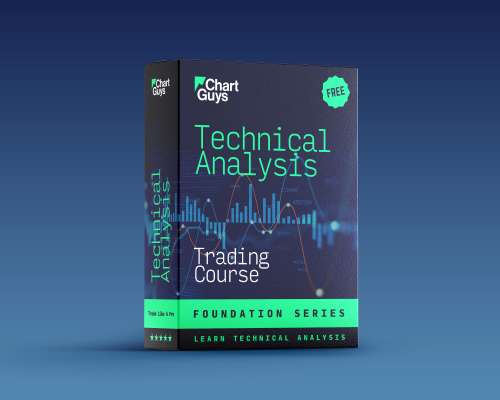There is no market without buyers and sellers. Somehow though, short-sellers and bears that short the markets have become somewhat vilified in the markets. I think the most common conception is that “you’re betting on people losing”. All of this negative attention has traders coming in and feeling scared of shorting, or feeling like it’s overwhelming as a trade setup. There is a reason for that, several in fact. And as a rule, shorting actually has some severe limitations compared to playing the long side. So let’s take a look at the nitty gritty of shorting.
“The markets are designed to go up”
This is actually true. Especially for ETF’s that continuously rebalance their positioning towards better performing companies. This is why betting on SPY bearish most of the time is far less profitable than picking individual companies who are severely underperforming. So if some markets are designed to go up - it can be hard to feel like we’re taking the hard route. Time frame will be what matters most to get over this. Too often people act on short term time frames with long term thinking. If markets are designed to go up, then why am I fighting that? Well because for every very long term trend, we have short term oscillations. If over 10 or 50 or 100 years markets gravitate up, that really shouldn’t affect your 2 hour or 2 week trade setup. Because on the 2-hour trade, or on the 2 week trade - the market was not designed to do anything but react to buyers and sellers - one of which will have the upper hand that you want to play with.
“You can’t set and forget”
No. You can’t. At some point you do have to choose a point where to cover your trade. It likely won’t go to zero. At some point with the drawdown, it will not be worth being in the trade anymore. Consider this: If you hit a homerun short holding something from 100 down to 30 dollars. And your initial investment was 1000 dollars (10 shares). You have now made 700 dollars on that trade. However, you only have 300 dollars left in the short, which means even if it goes down another WHOPPING 50%, you will only have made an extra 150 dollars, or 15% on your initial short position. At that point, there is very little to gain by holding that short vs putting the gains into another trade. So there is a very severe limitation on shorting in this regard. You need to put MORE money in to make less compared to the long counterpart of holding something that goes from 30 dollars to 100 dollars - because that same 1000 dollar initial investment would return 2000+ dollars, vs the 700 made by shorting. Because of this skewed risk reward, it can feel not worth it to short sell.
“Unlimited Risk vs. Limited Gain”
Again, this is true. A stock that can go up 500% that you bet against without a stop will wipe out your portfolio and then some. You do have to be vigilant about your shorting rules. Holding naked short positions overnight is actually pretty risky, especially on any small cap names. Options, hedging, covered calls, futures, position sizing and not playing highly volatile small caps are just some of the ways we can short and still mitigate this risk.
"If the rewards are more limited, it requires more money, and I can’t just set and forget - WHY ON EARTH WOULD I SHORT?"
Simple. Sometimes the markets go down. And often when they go down, they go down fast. As traders, our objective is to make money in any market. Up, down, sideways - you name it, we want to find a way to capitalize. The speed at which markets tend to go down, makes up for the more limited reward in shorting - and if played right still increases our capital to buy more when things change back towards the long side.
So now you know the pitfalls, you recognize why you might want to include shorting in your tools. But….
“If you’re shorting - you’re hoping people lose money”.
No. You’re not. You don’t have to wish ill on other people in order to be realistic about markets acting as they’ve always acted. They always fluctuate, they always act in waves. When people are invested for the long term, they accept these fluctuations as part of the game. When the markets act as they always act, if you recognize and capitalize on those waves, you are not wishing for others to lose. Some waves are bigger and more devastating. We wish there was more we could do to help more people hedge against bigger drawdowns in the market. That is why we teach and learn technical analysis in the first place. We want to empower people to grow their wealth and hold their gains in any market conditions. But that is the point - market conditions - meaning the markets are moving at a rapid, constantly changing rate. If our goal is to make money in the short term, we are using the conditions given to us to make money.












